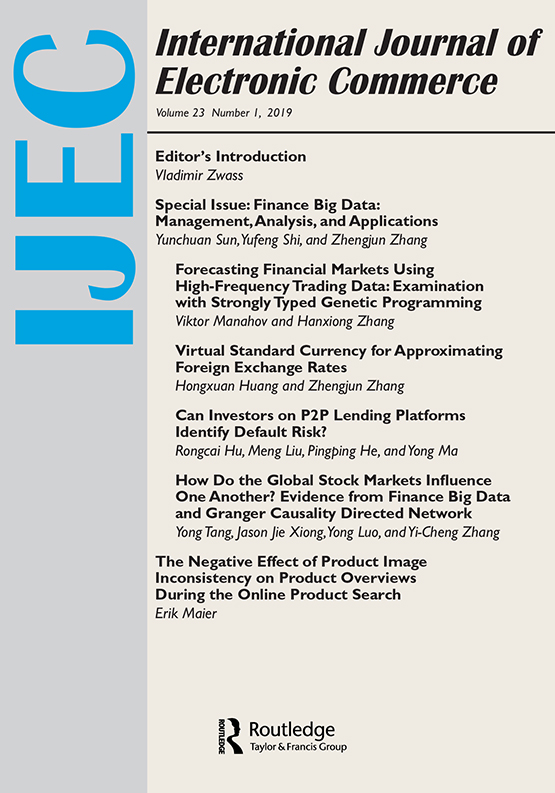培养平台人群的创新绩效:数字反馈困境
IF 3.8
3区 管理学
Q2 BUSINESS
International Journal of Electronic Commerce
Pub Date : 2021-07-03
DOI:10.1080/10864415.2021.1942674
引用次数: 7
摘要
随着众包对组织创新绩效的贡献越来越大,培养众包社区的创造力变得越来越重要。虽然数字反馈是平台和众包工作者之间主要的(如果不是唯一的)双向沟通渠道,但人们对如何利用数字反馈来管理和培养众包工作者的创造性表现知之甚少。本研究考察了通过在线界面虚拟提供的反馈的提供和性质如何影响创造性表现。我们认为,所谓的创造性自我效能与创造性绩效之间的正相关关系取决于数字反馈效价的共同作用和众包工作者将学习作为成就结果的关注程度。我们在众包环境中对298名参与者进行了两阶段的实验研究。结果表明,在虚拟环境中提供的反馈,无论反馈是积极的还是消极的,都可能被视为监视,从而损害了创意自我效能高、掌握目标导向低的众包工作者的创意绩效。然而,研究结果也显示,当收到负面反馈时,具有高创造性自我效能感和掌握目标取向的社区成员在后续的创造性任务中会更加努力。因此,我们提倡培养平台文化,既强调对贡献者自身能力的信心,又强调学习和发展的能力。本文章由计算机程序翻译,如有差异,请以英文原文为准。
Fostering Creative Performance of Platform Crowdworkers: The Digital Feedback Dilemma
ABSTRACT With crowdsourcing increasingly contributing to organizations’ innovative performance, it becomes more and more important for them to cultivate the creativity of their crowdsourcing communities. While digital feedback is the main, if not the only, two-way channel of communication between the platforms and the crowdworkers, little is yet known about how to use digital feedback to manage and foster the creative performance of crowdworkers. This study examines how the provision and nature of feedback, provided virtually through online interfaces, influence creative performance. We argue that the alleged positive relationship between the creative self-efficacy of crowdworkers and creative performance is conditional upon the joint effect of digital feedback valence and the degree to which crowdworkers focus on learning as achievement outcomes. We conducted a two-stage experimental study with 298 participants in a crowdsourcing setting. The results show that feedback provided in virtual settings, irrespective of whether the feedback is positive or negative, can be perceived as surveillance and thus hurt the creative performance of crowdworkers with high creative self-efficacy but low mastery goal orientation. However, the results also show that when receiving negative feedback, community members who have high creative self-efficacy and mastery goal orientation try harder in subsequent creative tasks. Accordingly, we advocate for nurturing platform cultures that emphasize both confidence in the contributor’s own competence and the abilities to learn and develop.
求助全文
通过发布文献求助,成功后即可免费获取论文全文。
去求助
来源期刊

International Journal of Electronic Commerce
工程技术-计算机:软件工程
CiteScore
7.20
自引率
16.00%
发文量
18
审稿时长
>12 weeks
期刊介绍:
The International Journal of Electronic Commerce is the leading refereed quarterly devoted to advancing the understanding and practice of electronic commerce. It serves the needs of researchers as well as practitioners and executives involved in electronic commerce. The Journal aims to offer an integrated view of the field by presenting approaches of multiple disciplines.
Electronic commerce is the sharing of business information, maintaining business relationships, and conducting business transactions by digital means over telecommunications networks. The Journal accepts empirical and interpretive submissions that make a significant novel contribution to this field.
 求助内容:
求助内容: 应助结果提醒方式:
应助结果提醒方式:


